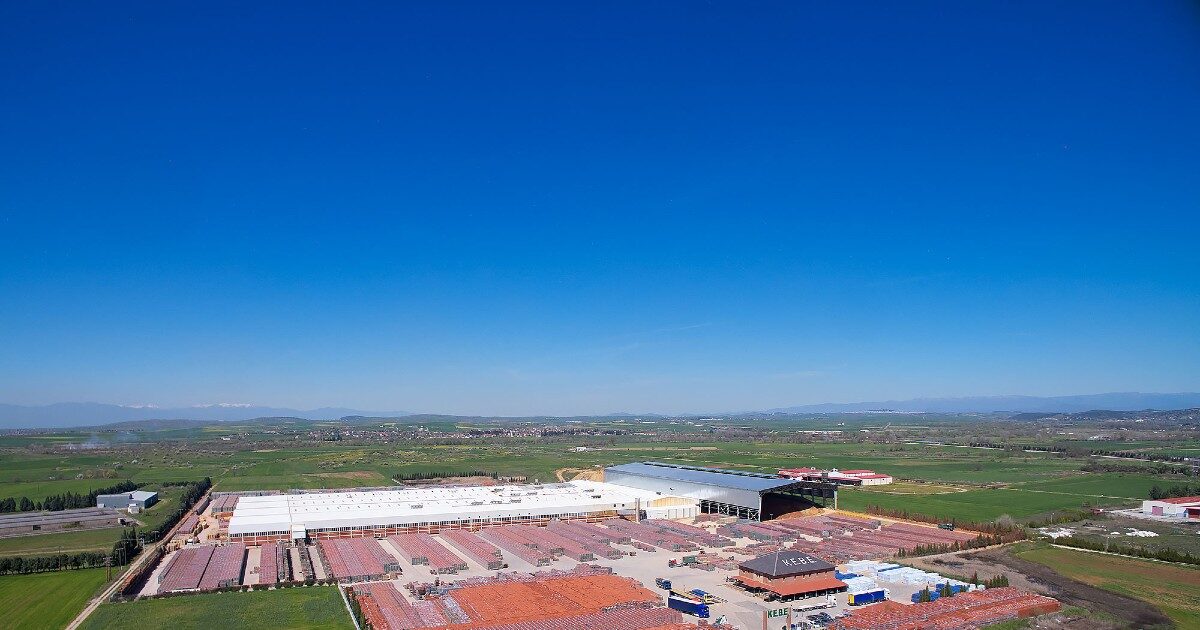The next strategic step in its development is being made by Northern Greece (KEVE) with the creation of a new factory in Serbia, investment which reaches 15 million euros. The production unit is expected to be launched in late 2025 and will be the third factory of the company after New Santa and Larissa.
The investment will take place in two phases, as reported yesterday (8.10.2025) to journalists by the President and CEO of KEVE, Agis Kothalis. The first phase, completed in 2026, provides for a production capacity of 600 tonnes per day, while in the second, the capacity will increase to 1,000 tonnes by 2028. The plant will be in the center of Serbia, offering access to all Balkan markets, where the CCC has a significant presence.
It is worth noting that facilities in New Santa record the highest productivity in Europe, with 2,000 tonnes of bricks and 200,000 tiles daily – a quantity corresponding to 100–150 houses each day.
In fact, the company is involved in almost all major public projects, in most training centers, industrial buildings and private and tourist projects, according to the head of the business.
Her portfolio of projects includes projects such as the Riviera Tower and the Cove Residences in Elliniko, the Thessaloniki Metro, the Democritus University of Thrace, the University of Thessaly, the Piraeus Court of Justice, as well as large hotel units in Greece and abroad, such as
In terms of exports, it accounts for about 60% of the total volume, with a presence in more than 40 countries, including Australia and New Zealand. Today, the company employs 230 employees and by the end of 2025 the number will reach 250.
Steadily upward course regardless of judgments
The € 43.6 million was closed the turnover (turnover) of KEVE in 2024 with EBITDA at € 10.8 million, while in consolidated results (along with RES activity), turnover amounted to EUR 47.14 million and EBITDA at € 13.73 million.
For 2025, turnover is expected by 20% in 2025, as it has already almost equated last year’s performance in the ten months.
Mr Kothalis points out that in 2026 it will be a landmark for the company, as it will be its first year of full operation in three countries. The new factory in Serbia, according to him, “is a strategic part of the sustainable development of KEVE and reinforcing its presence in the Balkans’ core.”
It is noted that in the last eight years, the Turnover of the CCCI has increased by 90% and EBITDA by 60%, confirming its steady upward trend.
New products, next steps and goals
In 2025, the CCCI presented three new masonry products: the MK80, which relates to the interior masonry and is for the first time in the renovation market, the MK150 that is exported and designed for the Skopje market and the MK180, which offers improved thermal insulation, sound insulation and greater resistance.
At the same time, the company continues to invest in research, energy efficiency and green transition, seeking to maintain its position among Europe’s most up -to -date and environmentally responsible ceramics.
According to Mr Kotalis, the company has reduced the weight of its products by 10%, with the aim of reducing by 20% by 2026, to reduce transport costs and facilitate their implementation to projects. KEVE has one of the lowest environmental fingerprints in Europe, aiming for a further 65% reduction by 2030.
At the same time, KEVE plans to move on to the next phase of technological upgrading with a transition to plaster molds, a choice aimed at improving aesthetics and differentiation of its products. This move will allow the company to enter new markets with increased design and quality requirements, but also to expand its on-demand services to customers.
